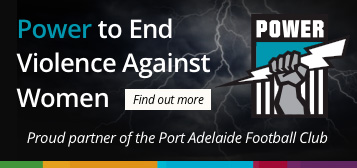Traumatic events in a person’s life can put them on a multi-directional path to homelessness. Understanding the impact of childhood trauma is driving Centacare’s support of vulnerable young people in the north.
It is easy to make assumptions about people living homeless: they’re tearaways, lazy, they should just get a job…
But it is the invisible pain cloaking their plight that’s guiding Centacare’s trauma informed care of young people living homeless in the north and Barossa Valley.
“I don’t think most people recognise the extent of how trauma effects people’s lives and their core,’’ says Megan Welsh, Executive Manager, Youth and Community Support Services.
“At the heart of their troubles is often years of immense sadness that’s hard to fathom when they’re still so young.
“Rather than punish and entrench that trauma, we try to repair and resolve it, and that in itself is quite complex because everybody’s experiences are different.’’
This is requiring a greater understanding of the challenges that precipitate homelessness, how adolescents act out as a result of experiencing childhood trauma, and the impact this has on the way Centacare supports them.
 In response, the Outer North Youth Homelessness Service (ONYHS) has adopted a trauma-informed approach to increase our capacity to support vulnerable young people beyond therapeutic and other traditional interventions.
In response, the Outer North Youth Homelessness Service (ONYHS) has adopted a trauma-informed approach to increase our capacity to support vulnerable young people beyond therapeutic and other traditional interventions.
The focus is as much on youth case workers as it is on those at risk.
“You hear a lot of stories, you feel a lot of pain and see a lot of distress,’’ says Tina Breen (pictured), Senior Social Worker. “That can sneak up on you.’’
Reflective practice and supervision is used to encourage staff self-care, and their work is guided by trauma informed policies and procedures.
A 2015 Pegasus Economics report shows unresolved trauma, and its long-term impact on an adult’s wellbeing, costs the nation about $7.8 billion each year.
In 15/16, the ONYHS supported 549 people (348 females and 201 males). Of these, 281 were homeless at intake, 218 were experiencing mental health issues and 57 were fleeing family or domestic violence.
“Most of the young people we see present with complex trauma: repeated episodes of abuse and neglect as a child is common,’’ Tina says.
“Developmental trauma linked to poor attachment and neglect is compounded by other risk factors, such as domestic violence, substance abuse and family breakdown, putting them on a multi-directional path to homelessness.
“As a result, they have less capacity to function so they might self-medicate or end up being the victim of further abuse, such as rape, or put themselves in violent situations because they don’t have the ability to act and respond and make decisions like everybody else.’’
Embedding a deeper understanding of trauma across the ONYHS is helping staff predict and more thoughtfully respond to young people’s reactions to some supportive interventions.
For example, a teenager’s refusal to eat may be due to deprivation or denial of food as a child.
“We might think we’re helping offering them a piece of toast if they’re feeling unwell, but what they see in that is a very scary, threatening act that makes them feel highly vulnerable,’’ Tina says.
Over recent months, the ONYHS has adopted a trauma informed approach to its psychosocial assessment at intake to avoid young people reliving painful events in their past.
In addition, to provide consistent support, limit disruption and foster stability, one youth case worker now works during the day at Carlow Place, Monday to Friday.
“Taking responsibility for understanding how trauma impacts their past allows us to make more informed responses in the support we provide to each young person,’’ Tina says.
*This week we are marking Homelessness Week (August 7-13). The national campaign aims to raise awareness of the experiences and challenges faced by people living out of home. The theme of this year’s week is ‘Action and Innovation‘ and we will be highlighting some of the ways we are supporting young people to stay safe, remain connected with their communities, and build their independence. Centacare provides specialist youth homelessness services, and accommodation support for women and children experiencing domestic violence, in regional and metropolitan South Australia.
#HW2017 #endhomelessness and #innovationinhomelessness







